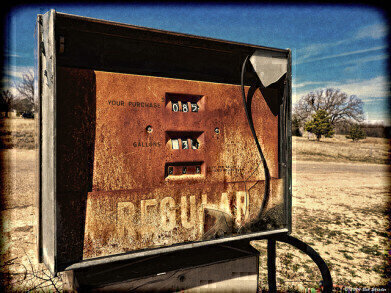Fuel for thought
What Does the Future Hold for Fuel Stations?
Mar 10 2016
Cruising into a petrol station and filling up the tank has become more or less a norm for most people. However, the latest predictions from Nissan suggest that this ritual isn’t set to last. In fact, the leading car manufacturer is predicting that in the future, fuel stations will become obsolete. With the emergence of interconnected cities, intelligent electric vehicles and clean energy, its in-house analysts assert that the need for petrol will no longer be present. This goes hand in hand with the disappearance of fuel station across the globe.
Nissan looks to the future
The prediction is part of a new partnership with architects Foster + Partners. Together, Nissan and the team designed what they visualise as the “fuel station of the future.” As the world makes the switch to zero emission Piloted Drive vehicles, the global reliance on petrol will begin to deplete.
Nissan showcased its futuristic vision in a beautifully engineered two-minute video featuring the bestselling Nissan LEAF, as well as its next generation IDS Concept. Check it out here!
“We’ve been at the forefront of zero emission technology since 2010, but our vision does not stop there – we believe that the future of transportation is reliant on both infrastructure and the environment. We’re looking for real, workable solutions that go beyond the product,” comments Paul Willcox, Chairman for Nissan Europe.
The technology of tomorrow
Understandably, Nissan’s vision of the future shone the spotlight on some of its pioneering new technologies, including vehicle-to-grid power, smart battery storage, wireless charging, autonomous drive technology and over-the-air connectivity. All will reimagine the way Europe distributes and consumes energy, resulting in a cleaner, greener, more sustainable continent.
“Integrating zero emission technologies into the built environment is vital in creating smarter, more sustainable cities. That commitment must extend far beyond the car – it must sit at the heart of everything we do,” said David Nelson, Co-Head of Design, Foster + Partners.
As well as protecting the environment, making the switch to clean energy is also about creating a healthier population. Gasoline contains benzene, which is a known human carcinogen linked to detrimental health effects. While the green energy revolution is underway, research is being channelled into the creation of safer fuels. ‘Improved Resolution of Benzene (and Other Aromatics) and Oxygenates in Reformulated Gasoline Using a One-Column Approach’ explores the arena in more detail, looking at the challenged posed by the complex composition of gasoline, and how scientists are overcoming them.
Image via Flickr Creative Commons. Photo credits: Bob Shrader
Digital Edition
PIN 25.6 Buyers' Guide
January 2025
Buyers' Guide Directory - Product Listings by Category - Suppliers Listings (A-Z) Articles Analytical Instrumentation - ASTM D7042: The Quantum Leap in Viscosity Testing Technology -...
View all digital editions
Events
Jan 20 2025 San Diego, CA, USA
Jan 22 2025 Tokyo, Japan
Jan 25 2025 San Diego, CA, USA
SPE Hydraulic Fracturing Technology Conference and Exhibition
Feb 04 2025 The Woodlands, TX, USA
Feb 05 2025 Guangzhou, China



















